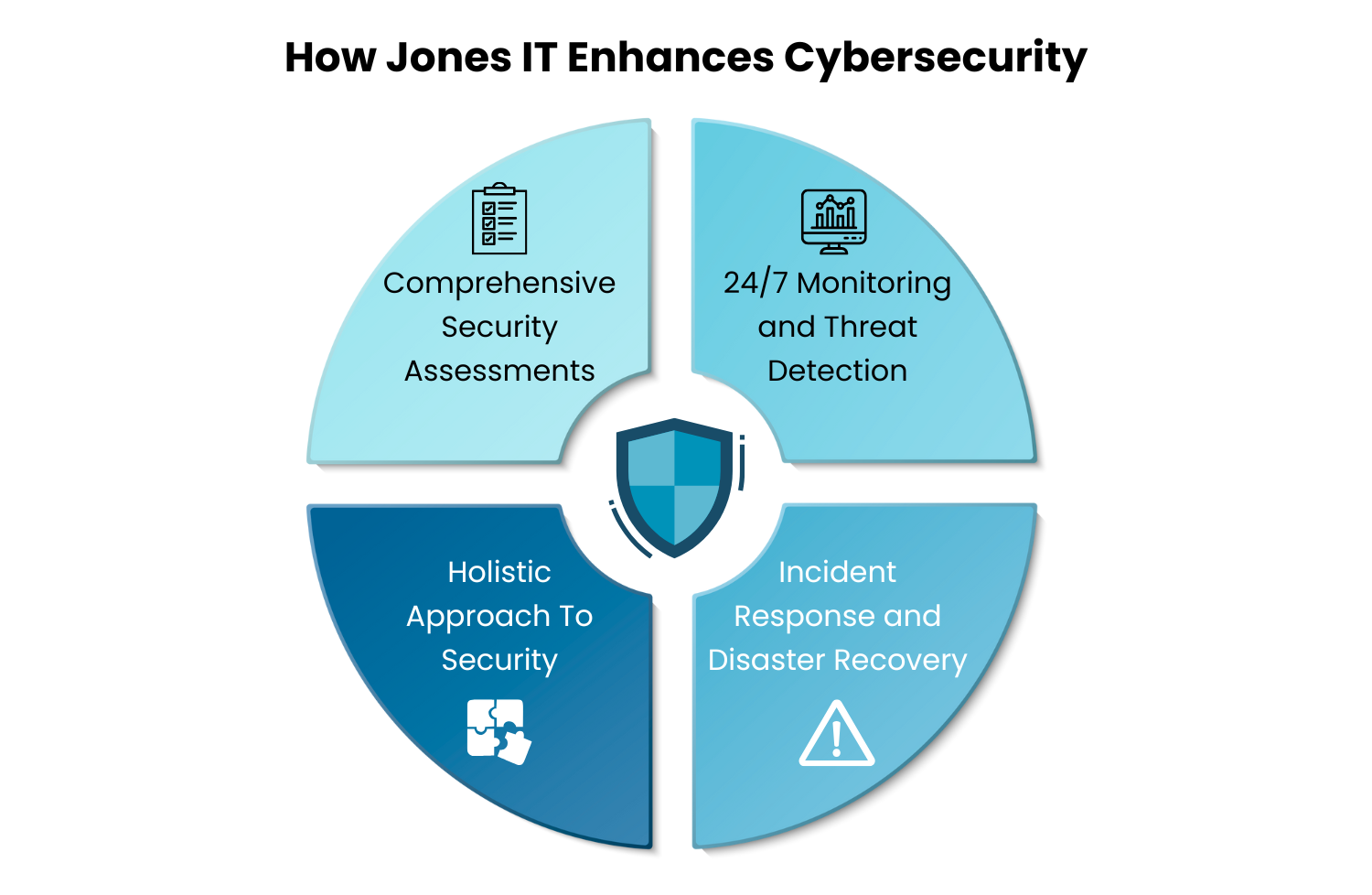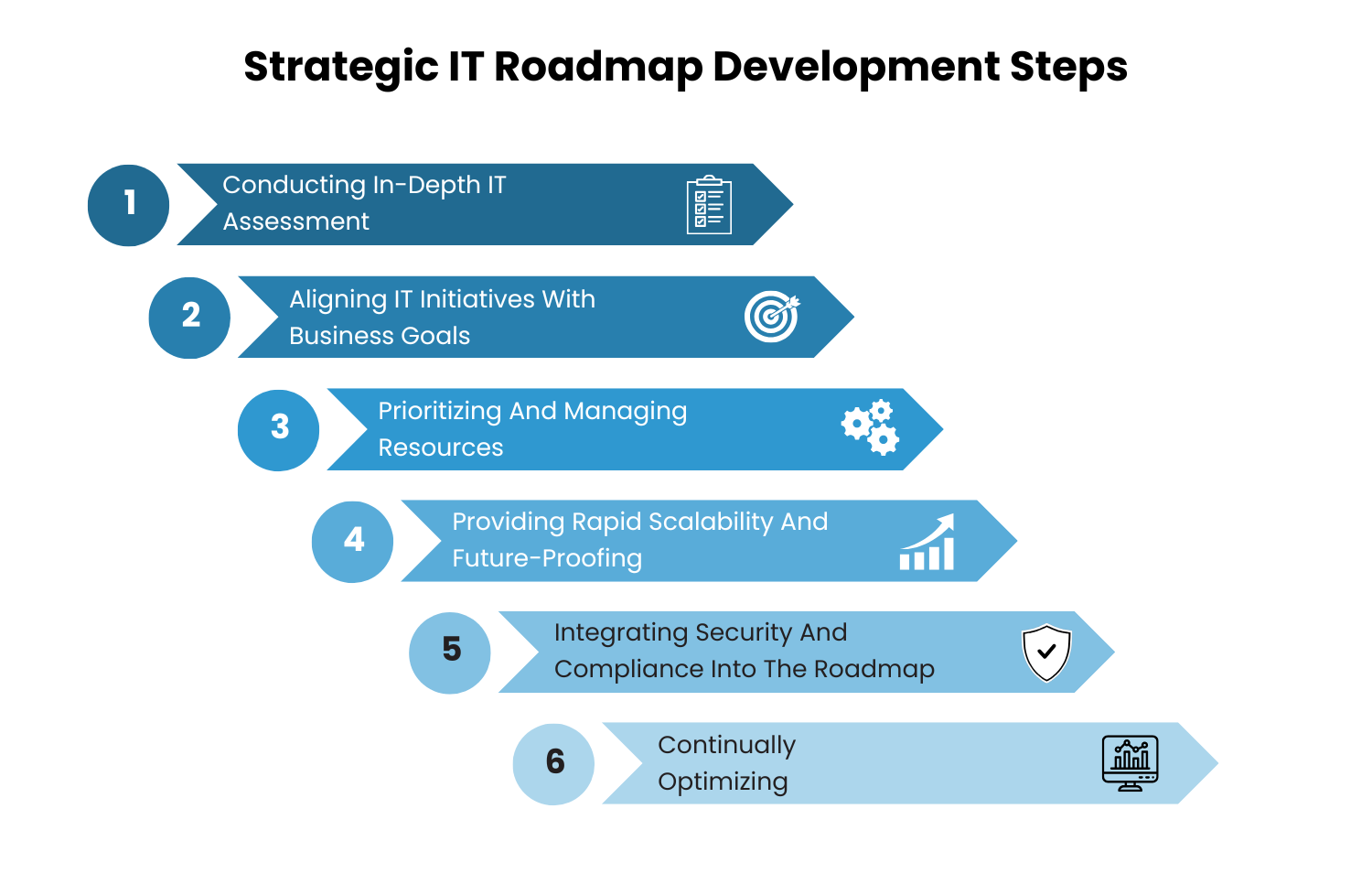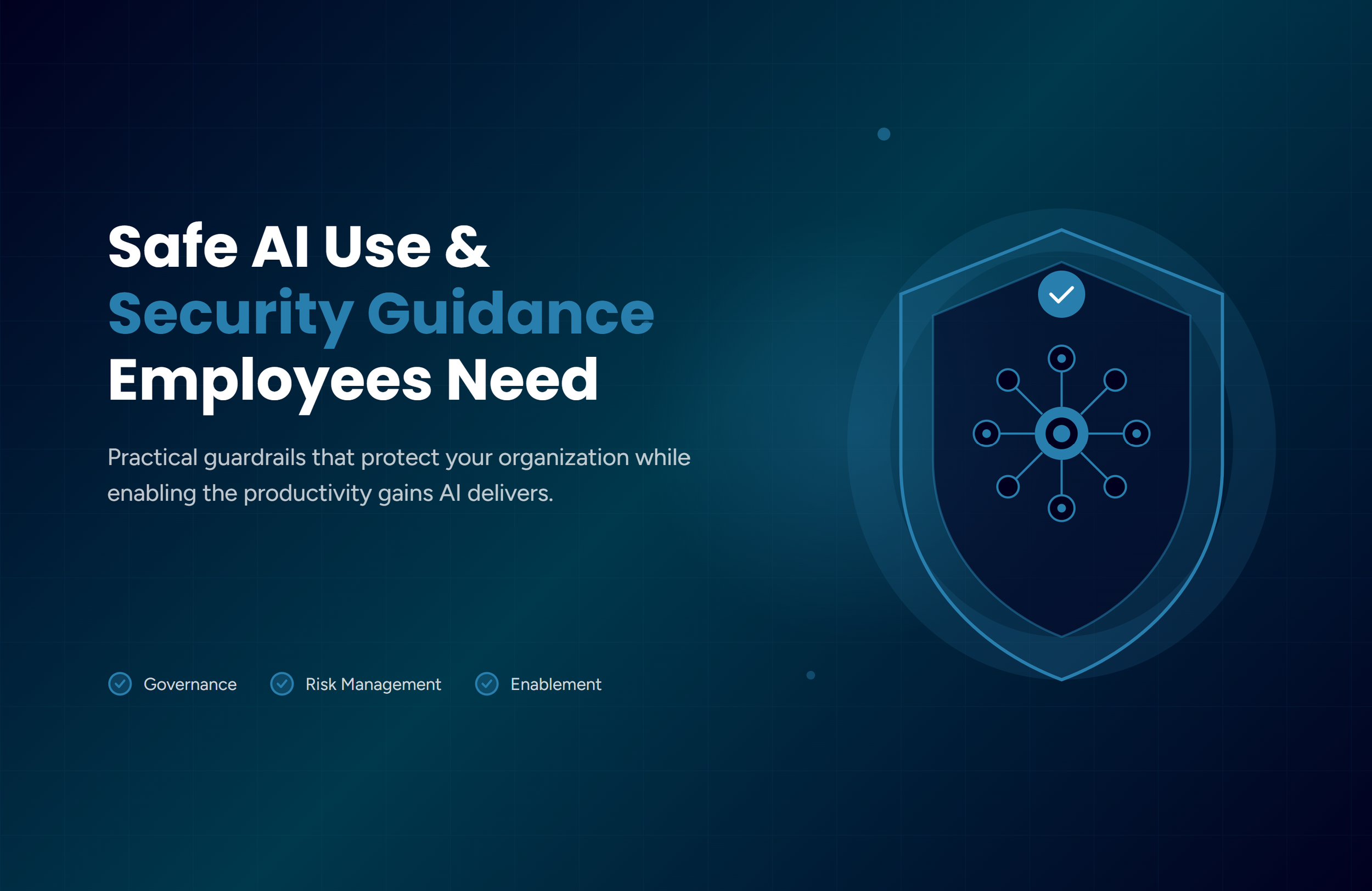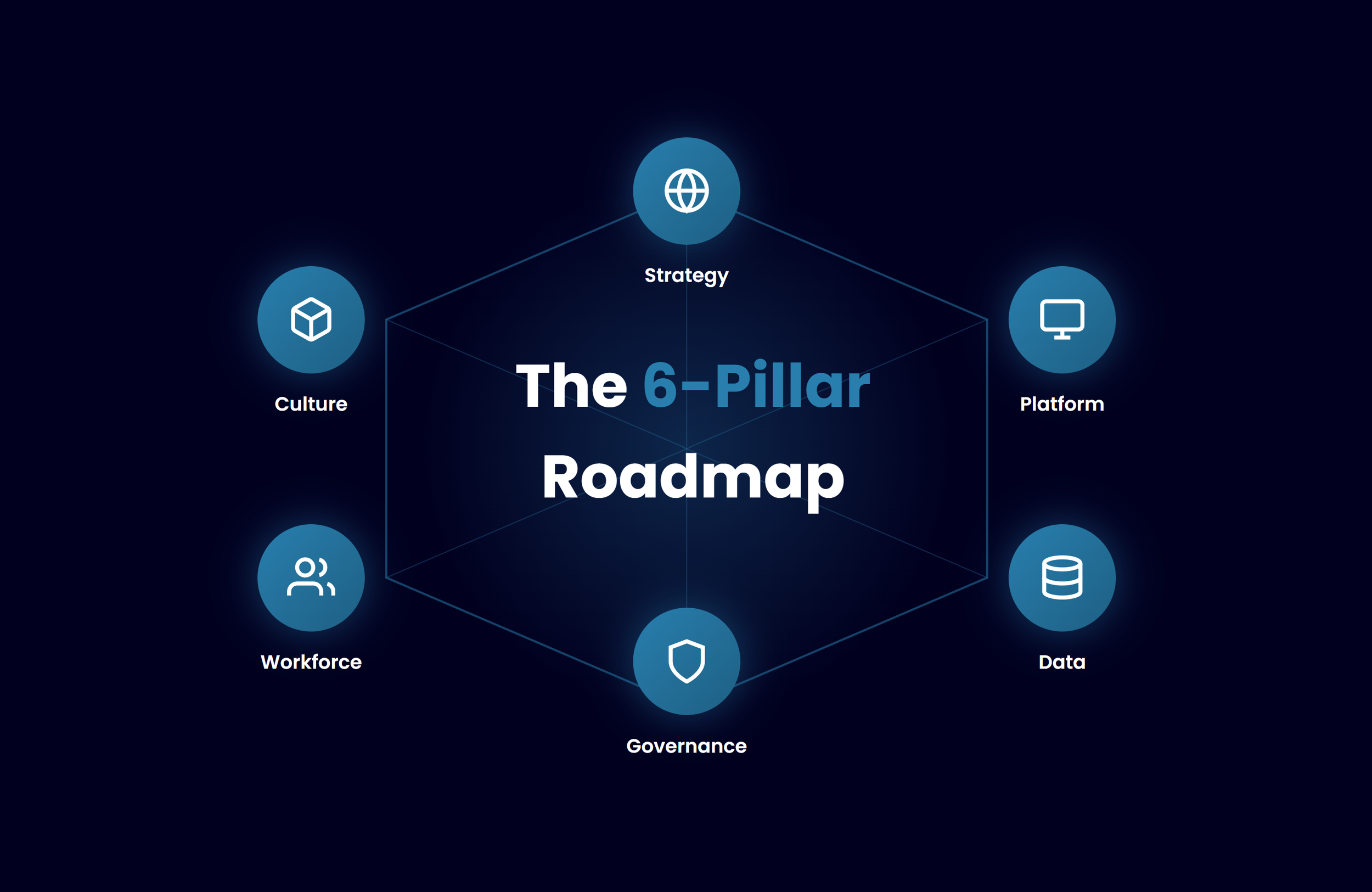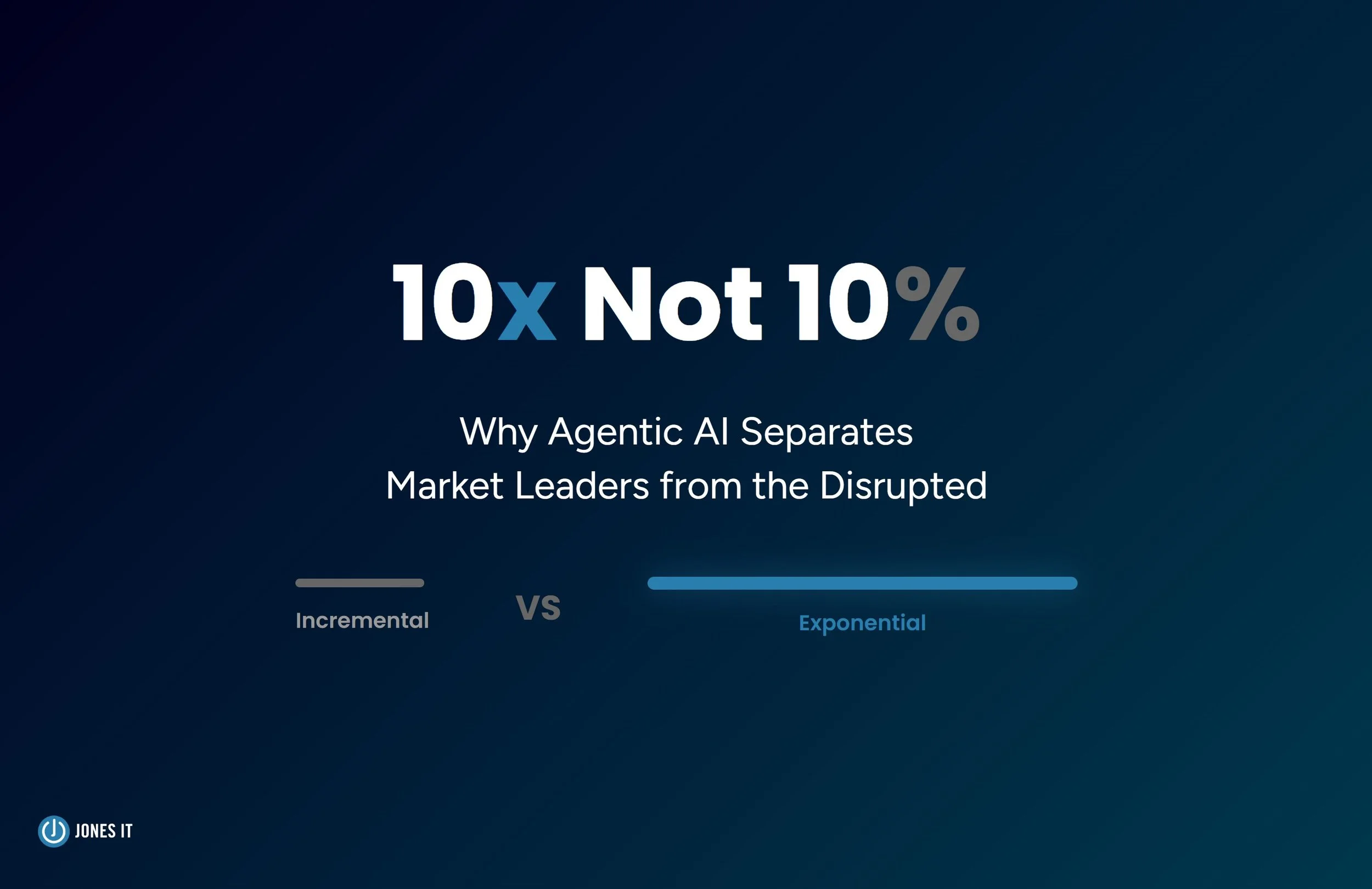How Jones IT's Managed IT Services Help Bay Area Startups Succeed
The San Francisco Bay Area, locally known as the Bay Area, has the second-highest concentration of Fortune 500 companies. Home to a wide range of businesses from the financial industry in San Francisco, heavy industries in Oakland, and the heart of the technology sector in San Jose, it has long stood out as an epicenter of technological innovation and consequent economic growth.
In the aftermath of the COVID pandemic, there was some apprehension about the longevity of the Bay Area’s economic success. However, the region has seen a resurgence thanks to Robotics, AI, and Fintech sectors, which are continuing to bolster the local economy with startups like Figure, Applied Intuition, Pinecone, BitGo, etc., epitomizing the Bay Area’s resilience and constant hunger for growth.
Such consistent emergence of promising startups, existing alongside established giants such as Google, Facebook, Apple Inc., eBay, Cisco Systems, Netflix, and Salesforce, has turned the Bay Area into a fast-paced, competitive, and tech-forward ecosystem. This has resulted in fierce competition for tech talent, making it difficult for startups to find and retain staff, especially in engineering, development, and IT.
In addition to limited resources and competing priorities, emerging companies often face the significant challenge of scaling their IT infrastructure and ensuring robust security measures; a challenge exacerbated by the lack of a dedicated in-house IT team with the expertise and capacity to manage critical aspects of their operations effectively while keeping up with technological innovation. This absence of internal IT resources hinders growth, increases exposure to security vulnerabilities, and diverts valuable time and resources away from core business objectives, drastically reducing the startups’ chances of success.
Managed IT services offer a compelling solution to this pressing challenge by providing startups and emerging businesses with access to a team of experienced IT professionals and a comprehensive suite of services tailored to their unique needs and evolving requirements.
In this blog post, we explore how Jones IT’s Managed Services help Bay Area startups and emerging businesses to thrive in this highly competitive market. This article draws upon our extensive experience of working with well-known companies, including AngelList, Figma, Superhuman, Substack, AllStripes, Intercom, and Applied Intuition, to name a few, and helping them with their IT needs at various stages of their growth and development.
The IT Challenges Startups Face While Scaling
As startups gain momentum, their IT demands grow more complex, and often more urgent, especially in the Bay Area. The IT setup that worked perfectly for a three-person founding team quickly becomes unmanageable at scale. Without proper planning and IT support, even the most promising startups find themselves stuck in reactive mode, constantly putting out fires instead of building for the future.
Here are the most common IT challenges startups face:
1. Limited In-House Expertise and Budget Constraints
For most startups, hiring a full-time IT team or even a senior-level IT professional is often out of reach. Between salaries, benefits, training, and turnover, the total cost of building an in-house IT department can run well into six figures annually. In an earlier post, we calculated that hiring just one entry-level IT technician in the Bay Area can cost upwards of $108,213 per year, not including backup resources.
That’s a heavy resource drain for early-stage startups trying to manage burn rate. As a result, many companies either delay critical IT work or rely on non-technical staff to fill the gap, often leading to inconsistent processes, ad hoc solutions, and increased risk exposure.
2. Growing Cybersecurity Risks
Startups are attractive targets for cybercriminals for multiple reasons. They are often flush with venture capital, moving quickly, and lacking in mature security practices. This creates the perfect opportunity for targeted attacks, especially as teams grow and work becomes more distributed.
According to Verizon’s 2025 Data Breach Investigations Report, 60% of data breaches were linked to human involvement, including credential abuse and social actions, like phishing. In our experience, these issues often stem from an overreliance on default settings, shared logins, or lack of visibility across devices and cloud platforms.
Remote and hybrid work complicates things further as the attack surface expands dramatically when employees work from coffee shops, co-working spaces, or personal laptops. Without proper endpoint protection, identity management, and mobile device controls in place, even a single compromised credential can lead to a devastating breach.
3. Onboarding (and Offboarding) at Startup Speed
For growing startups that are hiring quickly, IT, more often than not, becomes a bottleneck. New employees need laptops, access to critical systems, secure credentials, and collaboration tools, all on day one. Without a streamlined onboarding process, productivity takes a hit and security risks creep in. At the same time, few startups have formal offboarding protocols. Consequently, former employees often retain access to sensitive data, third-party tools, or shared drives far longer than intended, posing serious compliance and data security risks.
Lastly, startups and emerging businesses often lack a comprehensive view of their IT assets, including devices, software licenses, and subscriptions. This lack of visibility leads to blind spots at different stages of the asset life cycle. Even when assets are tracked, often, the inventory is incomplete and lacking in detailed information about each asset. This results in precious capital being tied up in unused devices, software, and licenses
Jones IT brings structure and speed to these processes by using our purpose-built asset lifecycle management solution to automate provisioning, manage hardware inventory, and ensure role-based access across your stack, so your team can grow without friction and your company makes optimal use of its resources.
4. Compliance Pressures in Regulated Industries
Startups operating in fintech, healthtech, edtech, or enterprise SaaS face significant regulatory requirements. Often, they have to meet stringent security and privacy requirements before they even close their seed round. Whether it’s SOC 2, HIPAA, or CCPA, these frameworks demand documented controls, regular audits, and security-by-design.
Unfortunately, many startups are either unaware of or underestimate the time, expertise, and documentation required to become audit-ready. This can delay go-to-market plans, stall partnerships with enterprise clients, or tank funding rounds when due diligence uncovers gaps.
With Jones IT’s extensive experience in supporting compliance across dozens of high-growth startups, we ensure that founders navigate these challenges with confidence, building processes that meet today’s needs while scaling for tomorrow’s demands.
How Jones IT’s Managed IT Services Support Startup Growth
Sustainably scaling a startup involves more than just adding more people and funding. It involves ensuring that your internal operations, especially IT, can keep pace with your ambitions. Jones IT’s managed IT services provide a critical bridge between early scrappiness and operational maturity, giving startups the support and guidance they need to grow confidently and securely.
Here’s how startups benefit from our services:
1. On-Demand Expertise Without Full-Time Overhead
Startups often need access to the knowledge and expertise of senior-level IT professionals but can't justify hiring a full-time Chief Information Officer (CIO) or IT team, especially in the early stages. Jones IT solves this by giving startups immediate access to a diverse team of experts, from system engineers to compliance specialists, at a fraction of the cost of building an internal team.
Partnering with Jones IT means you don’t have to rely on a generalist to juggle everything from helpdesk tickets to cloud architecture. Instead, you get specialized help when you need it, whether it’s setting up a secure remote work environment or preparing for a compliance audit.
2. Scalable Infrastructure That Grows with Your Business
As a startup scales, be it from 5 to 50 or from 50 to 500, so do its IT infrastructure needs. Startups often struggle to scale their infrastructure due to bottlenecks like outdated device management processes, cloud service limitations, or poor network performance.
Jones IT helps you avoid scalability issues by building flexible, cloud-first solutions that scale alongside your growth. This includes everything from device provisioning and license management to user permissions and network design.
3. Proactive Maintenance and Strategic Planning
Unlike reactive support models that only respond when things break, Jones IT provides proactive support- patching software, monitoring systems, and conducting regular audits, to ensure your IT ecosystem is healthy and secure.
As your company matures, we can also play a strategic role in helping you plan for what's next. Whether you need to open a second office, prepare for a funding round that requires security audits, or launch in a new market with different compliance needs, we don't just keep things running, we help you plan for the future.
How Jones IT Introduces Security at Every Stage of Growth
In the race to scale, security is often overlooked until, of course, something breaks. For startups, especially those in the tech-centric Bay Area, that oversight can be costly. Cyberattacks don't just target massive enterprises anymore. In fact, startups are increasingly seen as low-hanging fruit by threat actors looking for unguarded data, weak access controls, or unpatched software.
At Jones IT, we understand that security isn’t a “one-and-done” setup. It’s a continuous, evolving discipline that must adapt as your company grows. Here’s how our security approach benefits startups:
1. Securing the Foundation: From Day One
Security begins with the basics, and unfortunately, many startups skip this step. We help our clients build a secure foundation right from the start by:
Enforcing strong access controls, such as single sign-on (SSO) and multi-factor authentication (MFA);
Setting up mobile device management (MDM) to secure laptops and smartphones, especially in remote environments;
Encrypting sensitive data both in transit and at rest; and
Monitoring and patching vulnerabilities across all systems and endpoints.
These aren’t just best practices but safeguards against the most common and avoidable types of breaches.
Real-world example: One of our San Francisco-based early-stage clients in fintech was using a shared Google Drive setup with no access controls or versioning. We helped them migrate to a secure, permission-based system integrated with Okta for SSO, significantly reducing their exposure while maintaining a seamless user experience.
2. Adapting Security as You Scale
As a startup adds team members, tools, and third-party integrations, its attack surface grows exponentially. Suddenly, it has engineers using GitHub, sales using Salesforce, marketing on HubSpot, and operations with access to sensitive HR platforms. Without a unified IT strategy, it’s easy to lose track of who has access to what, and why.
We help growing startups implement role-based access control (RBAC) and create customized processes for onboarding and offboarding employees efficiently. We also ensure that startups have visibility across their tech stack, so unused accounts, outdated tools, or orphaned data don’t become security liabilities.
3. Responding to Evolving Threats
Cybersecurity threats continuously evolve, and the security systems that were effective last year may no longer be enough. Keeping this in mind, we proactively monitor emerging threats, from phishing campaigns to zero-day exploits, and update our clients’ security postures accordingly. For startups with limited in-house security expertise, this ongoing vigilance is a game-changer.
We also provide support for incident response planning, ensuring your team knows how to act if, or when, something goes wrong. A quick, coordinated response can be the difference between a minor disruption and a major reputational blow.
Did you know? The average cost of a data breach is USD 4.88 million, according to IBM’s Cost of a Data Breach Report 2024. This amount includes the cost of lost business, including operational downtime and lost customers, and the cost of post-breach responses
4. Security as a Business Enabler
Perhaps most importantly, we help startups think of security not as a roadblock, but as a competitive advantage. With security fundamentals in place, we ensure that the startup is better positioned to work with enterprise clients, accelerate compliance readiness, and protect customer trust.
By making security scalable and startup-friendly, Jones IT ensures that emerging businesses are not just reacting to risk but building resilience into every stage of your growth journey.
How We Bring Compliance-Readiness to Regulated Startups
For startups operating in industries like fintech, healthtech, or enterprise SaaS, compliance isn’t optional. It’s a barrier to entry. Whether you’re pursuing a partnership with a large client, preparing for an acquisition, or gearing up for Series A or B funding, your ability to demonstrate regulatory readiness can make or break the deal.
The problem? Most startups don’t have the expertise or internal bandwidth to tackle frameworks like SOC 2, HIPAA, or CCPA on their own. That’s where a partner like Jones IT becomes invaluable. Our extensive experience in compliance helps startups in the following ways:
Getting Audit-Ready, Without the Guesswork
Our team works hand-in-hand with founders, operations leads, and legal counsel to build out the technical controls and documentation needed to meet compliance requirements. This includes:
Setting up and enforcing data access policies;
Implementing logging and monitoring systems;
Documenting incident response and disaster recovery plans; and
Ensuring all devices and software meet encryption and patching standards.
We also help startups adopt compliance-ready platforms (like Vanta or Drata), integrating them with their services to make it easier to generate audit trails, assign responsibilities, and track gaps in real time.
Built-In Compliance from Day One
Trying to retroactively “bolt on” compliance when you’re already growing fast is painful. That’s why we help startups bake in security and compliance from the beginning, building processes and systems that align with your industry’s standards even before they become urgent.
We provide templates and guidance for:
Acceptable use and BYOD (Bring Your Own Device) policies;
Vendor management and third-party risk assessments;
Employee training on data protection and security awareness; and
Standard operating procedures for change management, access reviews, and log analysis.
This forward-thinking approach doesn’t just make audits easier, it gives your stakeholders (investors, clients, and partners) confidence that your business is built on a solid, trustworthy foundation.
Compliance Is Not One-Size-Fits-All
Different industries and markets come with different rules. For example:
A fintech company working with consumer financial data must follow PCI-DSS and SOC 2.
A healthtech startup handling patient information needs to meet HIPAA standards.
An edtech firm may be subject to FERPA regulations in school systems.
Jones IT tailors its support to your sector’s specific needs, helping you identify which frameworks apply and how to approach them with maximum efficiency and minimal disruption to your team.
We Help Build For The Future With Strategic IT Planning
Startups don’t stay startups for long, not the successful ones. As they evolve, their technology needs shift from piecemeal and reactive to strategic and forward-looking. This transition often marks the difference between scaling sustainably and hitting costly operational roadblocks.
Jones IT supports this evolution by providing strategic IT planning tailored to your business's growth trajectory. We're not just here to “fix your tech”, we help you use IT as a lever for long-term success.
vCIO Services: Strategic Guidance Without the Full-Time Cost
As mentioned earlier, hiring a full-time CIO is not in the cards for a Series A startup. However, that doesn’t mean a startup should operate without strategic IT leadership. Jones IT provides virtual CIO (vCIO) services to help growing companies:
Define long-term IT goals;
Review and optimize vendor relationships;
Assess risk and compliance priorities; and
Prepare technology plans to support hiring, funding, or expansion goals.
Through regular check-ins and quarterly reviews, your dedicated vCIO works closely with your leadership team to ensure IT is aligned with your evolving strategy, not just solving day-to-day issues.
Preparing for Future Funding Rounds and Market Expansion
Each funding round brings new expectations, from operational readiness to compliance maturity. Jones IT helps startups plan and position their IT environments to support due diligence, minimize risk, and instill confidence in investors. This includes:
Ensuring systems are audit-ready (especially for SOC 2, ISO 27001, or HIPAA);
Building scalable cloud infrastructure that can accommodate hiring surges;
Documenting IT policies and data practices for investor reviews; and
Creating cybersecurity roadmaps that align with investor expectations.
And for startups expanding into new markets or geographies, we help ensure your systems are compliant with local regulations and capable of supporting distributed teams effectively.
Aligning Technology with Business Goals
Too often, IT decisions are made in isolation, based on short-term urgency instead of long-term vision. Such short-sighted decisions can lead to a serious accrual of technical debt. At Jones IT, we help startups create an IT roadmap that aligns with their business objectives, whether that's launching a new product, entering an enterprise partnership, or building toward acquisition.
We work with your leadership team to:
Prioritize infrastructure investments based on business impact;
Build automation and processes to reduce friction as your team scales;
Identify emerging technologies that could support competitive advantage; and
Avoid unnecessary complexity or technical debt that could slow you down later.
This kind of forward-thinking support transforms IT from a reactive service into a strategic advantage, helping you move faster, with less risk, and more clarity.
Why San Francisco Startups Choose Jones IT
In the fast-moving, resource-strapped world of Bay Area startups, technology can either be a competitive advantage or a resource-draining bottleneck. What sets the most successful companies apart isn’t just innovation or funding, it’s their ability to scale securely, operate efficiently, and stay focused on what matters most.
That’s where Jones IT comes in.
For over two decades, we’ve helped some of the Bay Area’s most recognizable startups, including Figma, AngelList, Intercom, Substack, Superhuman, and Applied Intuition, build resilient IT foundations, navigate complex security landscapes, and grow with confidence.
Startups choose Jones IT because we offer:
Deep startup experience: We know what it means to move fast, stay lean, and wear many hats, because we’ve helped hundreds of teams do just that.
Full-spectrum support: From onboarding your first hire to passing your first security audit, we’re here to grow with you at every stage.
Proactive partnership: We don’t just respond to tickets. We anticipate needs, reduce risk, and align IT with your long-term vision.
A people-first approach: We care about your users, your team, and your goals. And we’re easy to work with, because good tech support should make your day easier, not harder.
In a city driven by innovation, speed, and trust, Jones IT has earned a reputation for delivering calm, clarity, and consistency, even as your business changes and grows.
Whether you’re preparing for rapid growth, tightening your security posture, or just need IT off your plate, Jones IT is ready to help. Schedule a free consultation and discover how we can help your team stay secure, productive, and focused on building what’s next.



